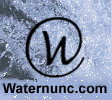 Nestlé has been named the winner of the Stockholm Industry Water Award for its leadership and performance to improve water management in its internal operations and throughout its supply chain.
Nestlé has been named the winner of the Stockholm Industry Water Award for its leadership and performance to improve water management in its internal operations and throughout its supply chain.
The Award Committee also recognised Nestlé’s work to improve the water management of its suppliers, which includes over 25 million people who are involved in its entire value chain. Nestlé employs 1,000 agronomists and water experts, who work directly with farmers to help them reduce their water requirements, increase crop yields, and minimise pollution. In 2009-2010, Nestlé provided expert training and technical support for 300,000 farmers and the company continues to collaborate with other food industry leaders to establish best practice and guidelines for sustainable water use at a farm level. Nestlé also has a leading role in the 2030 Water Resources Group.
Award Committee Member and Director of Water Projects at the World Business Council for Sustainable Development, Joppe Cramwinckel, said: “Through its unwavering commitment, Nestlé has established itself as a leader in smart water management and is deserving of this prestigious award. It is providing an example for other food producers and distributors to follow. With agriculture accounting for nearly 70% of global water use, and food demand expected to double by 2050, companies have an increasing responsibility to improve food chain resource efficiency.”
The honourary award will be presented to the chairman of Nestlé SA, P. Brabeck-Letmathe, at a ceremony on August 24 during the 2011 World Water Week in Stockholm. When receiving the news, he said: “I am most grateful for this recognition. We have identified water as the biggest challenge for future food security, and beyond that, for economic growth. This is probably the most prestigious award in this area for a company – and it will be a strong encouragement for us to continue with our efforts.”
Nestlé is the largest food and nutrition company in the world, employing around 280 000 people in over 100 countries. Over the past decade, Nestlé has reduced the total water withdrawals by over 30 percent, more than doubled the water efficiency of their internal operations and made significant reductions in the quantity of wastewater discharged into the environment.

Water awareness programme, Bilaspur, India. (Photo credit: Nestlé)

A farmer in Cote d’Ivoire tends to cocoa plants that were developed at Nestlé’s R&D Centre in Abidjan. (Photo credit: Nestlé)
The Stockholm Industry Water Award recognises the business sector's contribution to sustainable water management, by minimising water consumption and environmental impact. It is given to any sector of business and industry. The Award was established in 2000 by the Stockholm Water Foundation in collaboration with the Royal Swedish Academy of Engineering Sciences and the World Business Council for Sustainable Development. An independent award committee, composed of leading professionals and academics of water sciences, reviews all submissions and selects the winner following an open nomination process. The award is administered by the Stockholm International Water Institute. www.siwi.org/stockholmindustrywateraward.
About SIWI
Independent, Leading-Edge Water Competence for Future-Oriented Action
The Stockholm International Water Institute (SIWI) is a policy institute that contributes to international efforts to combat the world's escalating water crisis. SIWI develops and promotes future- oriented and knowledge–integrated policies, towards sustainable use of the world’s water resources leading to sustainable development and poverty eradication. www.siwi.org
About the World Business Council for Sustainable Development (WBCSD)
The WBCSD is a CEO-led, global coalition of some 200 companies advocating for progress on sustainable development. Its mission is to be a catalyst for innovation and sustainable growth in a world where resources are increasingly limited. The Council provides a platform for companies to share experiences and best practices on sustainable development issues and advocate for their implementation, working with governments, non-governmental and intergovernmental organizations. The membership has annual revenues of USD 7 trillion, spans more than 35 countries and represents 20 major industrial sectors. The Council also benefits from a network of 60 national and regional business councils and partner organizations, a majority of which are based in developing countries.
www.wbcsd.org
Press contacts:
Britt-Louise Andersson, Acting Communications Director, SIWI
Tel. +46 73 914 397
Email. britt-louise.andersson@siwi.org
Peter Paul van de Wijs, Managing Director, Communications, World Business Council for Sustainable Development
Tel. +41 22 839 3141
Email. vandewijs@wbcsd.org





